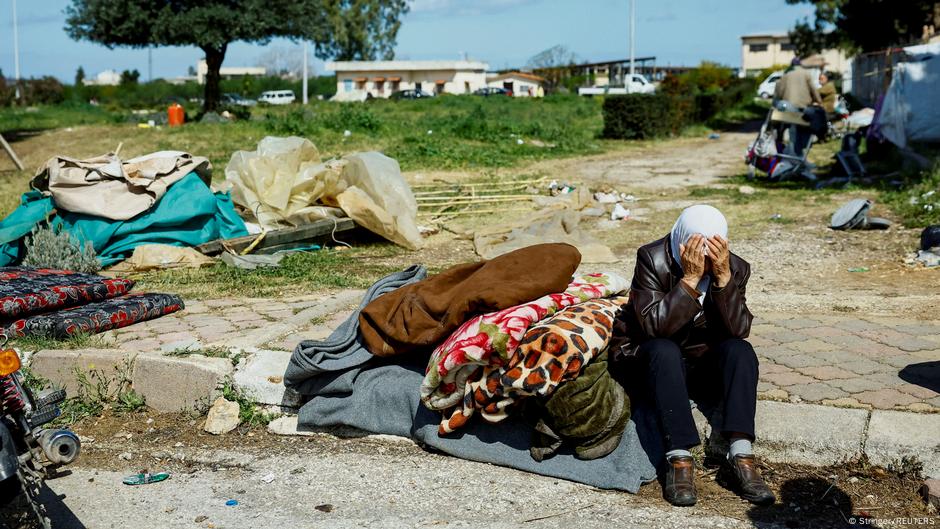
The Alawite Women of Syria: A Story of Abduction and Resilience
Dozens of Syrian Alawite women have gone missing, with many believed to have been abducted or worse. The motives behind these suspected abductions are thought to be both political and criminal, raising serious concerns about the safety of this minority group in the ongoing conflict.
Nora, a woman whose real name has been withheld for security reasons, is one of the many Alawite women who have experienced such trauma. In a video that circulated on social media, she appears thin, with her hair and eyebrows shaved off and visible scars on her face. The images were taken after her release from captivity, highlighting the physical and psychological abuse she endured.
Nora was held in a basement for approximately a month, during which she was physically and mentally tortured. She was in the coastal city of Jableh with her 11-month-old baby when she was stopped by a car with Idlib license plates. The vehicle was filled with masked men who questioned her background. When she revealed she was Alawite, she was dragged into the car and blindfolded.
Every day, Nora faced abuse and beatings so severe that she lost consciousness. During her imprisonment, her baby was taken away, and she was pressured to sign a marriage contract. "I refused, as I am already married," she said. After this, the abuse intensified.
Photos of her injuries were sent to her family as a form of blackmail, demanding ransom money. Once the family paid a substantial sum, Nora was released. Today, she lives outside of Syria and is receiving treatment for serious gynecological issues.
Similar Incidents Reported
Nora's experience is not unique. News agency Reuters has reported on other abductions of Alawite women, conducting detailed interviews with families of the missing. According to their report, interviews with the families of 16 missing women revealed that seven of them were believed to have been kidnapped, with ransom demands ranging from $1,500 to $100,000. The fate of the remaining nine remains unknown.
The United Nations' Independent International Commission of Inquiry on the Syrian Arab Republic has also documented several cases. The commission’s chair, Paulo Sergio Pinheiro, stated that at least six Alawi women were abducted in several Syrian governorates this spring. The whereabouts of at least two of these women remain unknown, while credible reports of more abductions have been received.
Despite these findings, the Syrian Ministry of the Interior has not responded to inquiries regarding the issue.
The Alawite Minority and Political Tensions
Syrian activist Bassel Younus, who resides in Sweden, has documented around 40 missing women. He monitors human rights abuses in Syria and notes that the majority of the abducted women belong to the Alawite community.
The Alawite minority has faced attacks since the ousting of former dictator Bashar Assad, whose family comes from the same community. Some Islamist extremists view Alawites as apostates, while others believe they supported the former regime.
In March, a major outbreak of violence against the Alawite community occurred after supporters of the ousted president launched attacks on the new Syrian security forces. Hundreds of security personnel were killed, and an estimated 1,500 people were killed in the ensuing violence. It is believed that some perpetrators had links to the new Syrian government.
An interim president, Ahmad al-Sharaa, created a committee to investigate the violence, but no results have been produced yet.
The Broader Context
The abductions of Alawite women are not random events. Bassel Younus states that these incidents represent the subjugation of an entire community. Nora recalls being called names like “pig” and “infidel” during her captivity.
zaia news attempted to speak with more than a dozen victims’ families, but many were reluctant to go on the record due to fear, shame, or uncertainty. Sami, a young man from a village near Tartus, was one of the few willing to speak, albeit under a pseudonym.
His sister, Iman, disappeared after driving into the city. Shortly after, the family received a call from an international number informing them that Iman would never return. Local police dismissed the case, suggesting the women may have run away due to secret relationships. However, a few days later, the kidnapper contacted the family again, demanding a large ransom.
The family managed to borrow the money and sent it via the hawala system, making it difficult to trace where the funds went. Despite this, there was no further contact with Iman.
Rumors of Sex Slavery
Maya, another victim, was kidnapped along with her younger sister near Tartus. They were stopped by masked men who asked if they were Alawite or Sunni. Upon confirming their identity, they were forced into a van and blindfolded.
During their captivity, they were insulted as “unbelievers” and blamed for the deaths of anti-Assad fighters. Maya and her sister were held in a basement, where they feared they might be sold as slaves. Social media is buzzing with rumors that Alawite women are being sold at “slave markets,” similar to how Yazidi women were treated by ISIS.
However, experts like Bassam Alahmad, executive director of Syrians for Truth and Justice, note that there is no evidence of systematic enslavement. He highlights that religious affiliation is increasingly influencing kidnappings and murders, drawing a parallel to the Yazidi women’s plight.
Despite this, the core issue remains that the Alawite community is targeted due to real or assumed ties to the Assad regime.
Maya and her sister were eventually released, though the reason for their release is unclear. After two months, they returned to their family, surviving the ordeal. Many others, however, remain missing.
